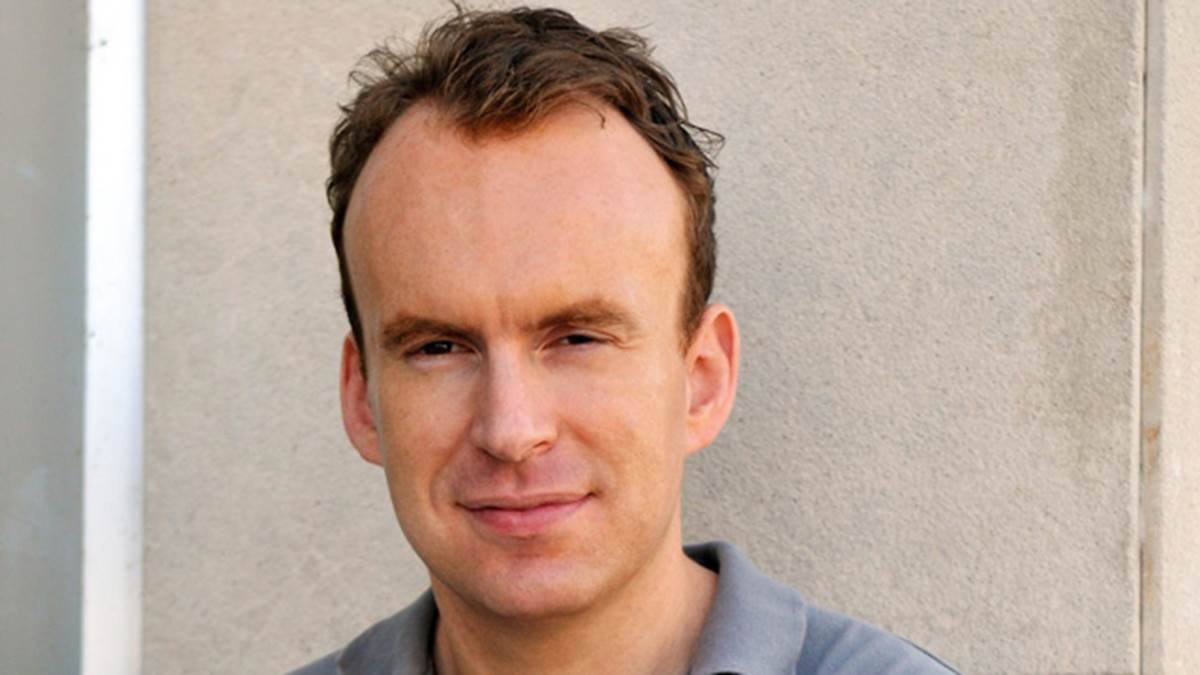How to make books more popular
Published on: 31 May 2013 Author: Matt Haig
The award-winning national treasure Matt Haig, who's work includes Shadow Forest and A Boy Called Christmas, became our eighth Writer in Residence back in 2013. In his final blog Matt spoke about the state of reading for pleasure in this country, his hopes for the future and his manifesto for making reading popular again.

I am sad. This is my last BookTrust blog. I thought for this one I'd go for something big and a little bit serious, and get as much off my chest as possible before I have to go back to getting an actual therapist (next week).
So here are my own personal ideas for making books more popular. Of course, books ARE popular, but not as popular as they should be. I know, I know, I'm a writer. The last people who know anything about books are writers. But I was once offered a job with a top advertising firm, which I didn't take in order to stay having a soul.
And I once, as an agoraphobic with no options, wrote eight books on marketing in a year (please don't google them). Anyway, this blog is going to be too long (I can't let go) and I feel a bit too soft and weepy to conjure up another rant, but I'll try. So here goes.
Some ways to boost books:
1. Subsidise struggling bookshops. We do it with banks.
2. Sell books with confidence. A book is the most perfect and pure artform we humans have ever created. As I've said before, the essence of many other art forms starts with words on a page. Books, then, are pure essence. If words are the foundation of thought, then books are wonderful and unimprovable thought-sculptures. Yet books themselves don't always seem to know this.
3. A book is enough. Books should not feel inferior to films and TV and celebrity magazines. The other day I saw an advert for the book of The Great Gatsby. It was the film tie-in version, and the main selling point was an interview with the director Baz Luhrman. Wouldn't it be nice to live in a world where the main selling point of The Great Gatsby novel was The Great Gatsby novel? When a book gets on its knees to movies in this way, aspiring to be a DVD extra rather than its true and perfect self, it might help the sales of a particular book but it helps lower the idea of books in the public mind.
4. Resist snobbery. Book snobbery creates a three tier book system that segregates imagination, harms quality and limits sales. Intelligence and entertainment are not separate genres (read Graham Greene.)
5. Put video games on the curriculum. A lot of people are put off books at school. I was put off Steinbeck and Shakespeare at school. If you want to put someone off an entertainment form here is how you do it - turn it into a test, something they can fail at and be shut out from, and stop people feeling its magic by getting them to crudely isolate its component parts - imagery, similes, metaphors, themes, characterisation etc. It's like trying to get someone to eat steak by showing them a slaughterhouse. People worry that teenagers stop being interested in books and start being into video games and Youtube and Facebook. If you are reading a BookTrust blog then you were probably never put off books, but plenty are. People's attitude to books mirrors their attitude to education. I'm not saying stop teaching books, I'm just saying teach them in a way that doesn't turn them into a worthy teenage no-go area.
6. Publish paperbacks at the same time as hardbacks. Hardbacks get all the press but a lot of people don't buy hardbacks. So paperbacks should be able to capitalise on reviews and such and book buyers are given instant choice - the classy haute couture option, or the off-the-peg cheaper version. This stubborn delaying tactic seems a very 20th century, simplistic, pre-viral marketing way of thinking.
7. Publish the right books. Don't blow half a million on some celebrity memoir/cookbook/photo diary that you'll never recoup. Instead, invest half a million in fifty advances of ten grand a pop to publish fifty new writers who can write, one of whom will win the Booker.
8. Do not publish someone just because you know them or they used to work with you or because they are a book reviewer. Do not publish someone because they have a famous surname. If it's a good article but not a good book, you have only helped to raise the medium of magazines.
9. Don't publish copycat books. The big books are always first movers.
10. Bust genres. It worked for Shakespeare.
11. Realise that gender is not a genre. (See also: race, location, age.)
12. Remember that books aren't going anywhere. E-books won't replace books, they will become them (electronic paper is on its way). Your Kindle will look old-fashioned in ten years but a book won't. Stop worrying. Words and stories and narrative and novels are here to stay. Books are maps. They will remain the best way we have of exploring our imaginations and finding thoughts and emotions buried like treasure inside us. Never, for one moment, dismiss or mock or belittle or doubt the world-shaking human power of a book.
Topics: Writer in Residence, Features






Add a comment